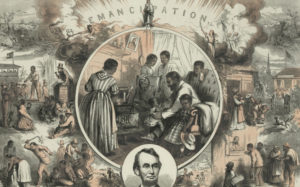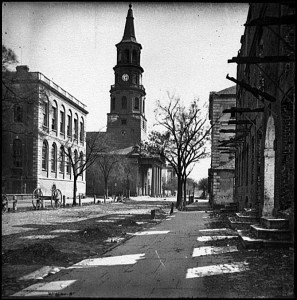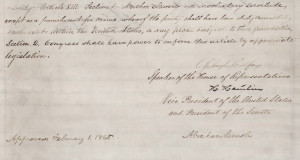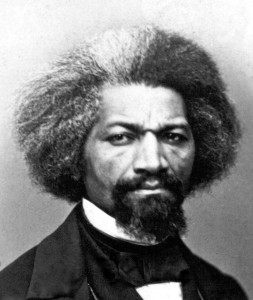Rep. John Conyers re-introduces H.R. 40 on reparations for slavery and discrimination
Posted January 4th, 2017 by James DeWolf PerryCategory: Repair and reparations Tags: H.R. 40, Rep. John Conyers, Reparations for slavery, U.S. Congress
Representative John Conyers (D-Mich.) has re-introduced legislation before the 115th U.S. Congress to acknowledge slavery and racial discrimination, study their impact, and propose remedies.
H.R. 40, numbered in recognition of the unfulfilled promise to freed slaves of “40 acres and a mule,” has been introduced by Rep. Conyers at the start of every Congress since 1989. The bill bears the following formal title:
To address the fundamental injustice, cruelty, brutality, and inhumanity of slavery in the United States and the 13 American colonies between 1619 and 1865 and to establish a commission to study and consider a national apology and proposal for reparations for the institution of slavery, its subsequent de jure and de facto racial and economic discrimination against African-Americans, and the impact of these forces on living African-Americans, to make recommendations to the Congress on appropriate remedies, and for other purposes.
If the past is any guide, the short title of H.R. 40 is likely to be, “Commission to Study Reparation Proposals for African-Americans Act.”
H.R. 40 has been referred to the House Judiciary Committee for (possible) further consideration. Rep. Conyers is the ranking minority member of the Judiciary Committee, and chaired the committee the last time there was a Democratic majority in the House.
Rep. Conyers introduced the previous version of H.R. 40 at the start of the 114th Congress two years ago. It was also referred to the House Judiciary Committee, where it languished until the 114th Congress expired this week.
We were honored to have Rep. Conyers speak at a press conference before the world premiere of our documentary, Traces of the Trade, at the Sundance Film Festival in 2008, to highlight the importance of understanding the nation’s complicity in slavery and discrimination in order to make progress towards racial healing and justice.



 Today, June 19, is widely celebrated as
Today, June 19, is widely celebrated as  As we pause today to remember the nation’s war dead, it’s worth remembering that Memorial Day was first celebrated by black Union troops and free black Americans in Charleston, South Carolina at the end of the Civil War.
As we pause today to remember the nation’s war dead, it’s worth remembering that Memorial Day was first celebrated by black Union troops and free black Americans in Charleston, South Carolina at the end of the Civil War.
 Today, February 1, 2015, is the 150th anniversary of President Lincoln’s signing of the 13th Amendment to the Constitution, abolishing slavery throughout the United States.
Today, February 1, 2015, is the 150th anniversary of President Lincoln’s signing of the 13th Amendment to the Constitution, abolishing slavery throughout the United States. Today, January 31, 2015, marks the 150th anniversary of the narrow but momentous decision, by a bitterly divided U.S. Congress at the end of the Civil War, to abolish slavery throughout the United States.
Today, January 31, 2015, marks the 150th anniversary of the narrow but momentous decision, by a bitterly divided U.S. Congress at the end of the Civil War, to abolish slavery throughout the United States.